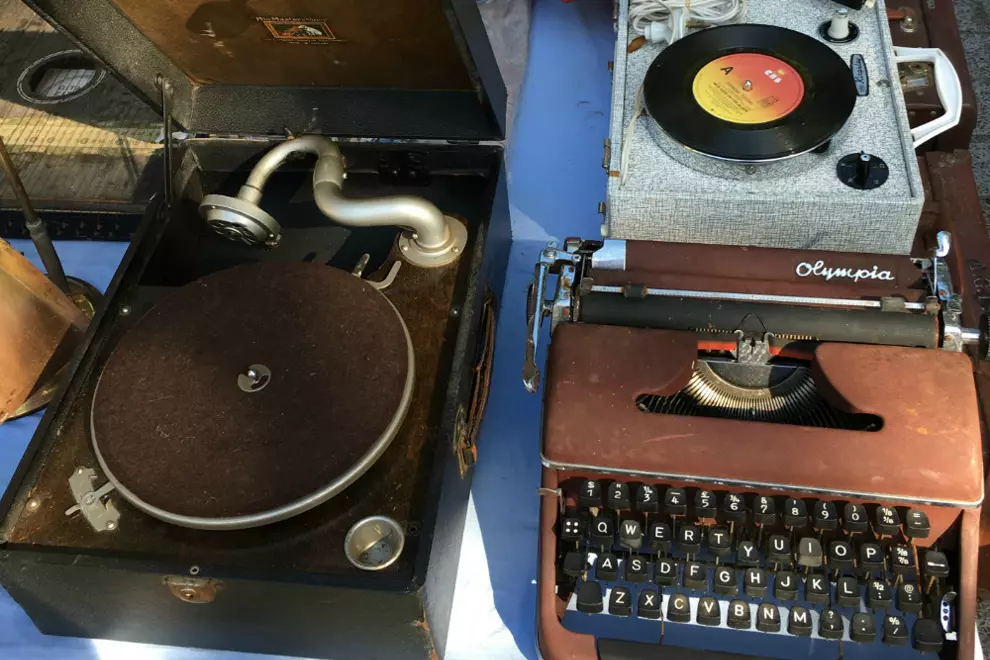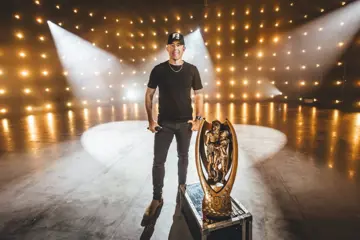Around the country and the world, there are little pockets of professionals, enthusiasts and retirees literally plugging away at gear decades older than most of the artists on the current charts. But is there more supply than demand for vintage gear repair? And is this a workforce that is growing or fading away?
“It’s mostly older guys like me getting back into it, and if you want to look around the country on Facebook groups, there are people doing this, but it’s scattered,” says Mark Ziza, a specialist vintage repairer based in Queensland.
Having gotten into the industry again after a career in other types of electrical work, he’s found himself so overwhelmed with requests that he’s got a backlog of up to six months.
“I think there's been a resurgence in popularity of old equipment, from young people to retired people; people just getting their old gear fixed up, stuff that's been sitting around for years.
“You know, I've had a guy brought me a 1978 ‘three in one’, which in its day, it was like a low-end HiFi system. And he wanted it repaired because that was the year of his birth. So, he just had that as a party piece at home, and he had other gear as well, but this was something he played records on.”
Don't miss a beat with our FREE daily newsletter
Mark is part of an unofficial network of vintage repair guys (pretty much exclusively guys at the moment) with more work than they can handle in a growing part of the music industry.
This issue is not just with the gear itself (which was never designed to last decades) but also with the parts and the know-how. Obviously, there’s trial and error, including trying things like replica parts (even parts remade with 3-D modelling), but then there’s also just working out how best to teach people to continue to gain and build knowledge.
“In each state, I can think of characters who are doing this, but some of them must be fully retired. It’s like doing up old cars; some people spend hours and hours on these things, totally pulling it apart, painting it and making it better than new,” he says.
“Three years ago, I got right into it, finished the contract and thought, ‘I'll get some business cards’. And I didn't get around to it, and now I don’t want to because I’ve got so much work. I’m having to drag the jobs out sometimes to six months [because of the volume of work and backlog], and it's kind of unfair for some people. Yeah, it's crazy because it’s just me… and it’s really popular.”
In addition to Facebook groups like “Boombox Collectors Australia”, repairers are drawing on old manuals, YouTube instructions and good old-fashioned trial and error.
“In each state, I can think of characters who are doing this, but some of them must be fully retired,” Mark says. “It’s like doing up old cars; some people spend hours and hours on these things, totally pulling it apart, painting it and making it better than new.”
While still very dominated by men of a certain age, Mark has noticed a recent update in engagement with old gear by younger people, including younger women. “I've noticed a difference in my last job [in Engineering]; there was definitely a push to get more women into the sort of areas that they call it now for STEM (Science, Technology, Engineering, Math] … There's certainly no reason why that couldn't have been more women in engineering, and more in repairs like this.”
Services and knowledge like Mark provides are vital to the longevity of the vintage revival for hobbyists but also for our cultural institutions.
Alysha Rose Connor is a conservator, archivist and audio/visual specialist currently at Sydney’s Powerhouse Museum, and she explained the issues like this: “I worry that the information is dying out in terms of analogue preservation, and in particular preserving equipment [as well as media like tapes or records].
“And it won't be followed on by new preservation officers or new graduating conservators because a lot of our conservation schools are more object-focused rather than focusing on equipment to play objects.”
As part of her role at the Powerhouse, Alysha is trying to change this by ensuring that when items are acquired, knowledge about how to use and, importantly, fix them is also being captured. “Unless we record a lot of these gentlemen who are retiring [and it is primarily men in the industry], moving on from just the manual to how to apply these techniques now, then we’re going to lose this art, this ability to repair vintage gear.
“There is currently no real means to pass on that knowledge formally or to have someone to inherit this; it’s rare to have younger apprentices or younger volunteers wanting to engage.” Seeing the problem, Alysha is working to be part of the solution, at least for now.
That includes making sure, where possible, “to record the interaction with machines and interview people [who can fix them]”. Better than just relying on ad-hoc YouTube clips, the aim is to “retain this cultural knowledge” as well as inspire others to get into a field in high demand. Like Mark, Alysha sees more demand for work than the market can currently supply.
It seems anyone wanting to retrain or train up would be in a good place. “From what I found, museums and archives, as well as individuals, are begging for people to be interested in audio-visual media and its repair.”
















